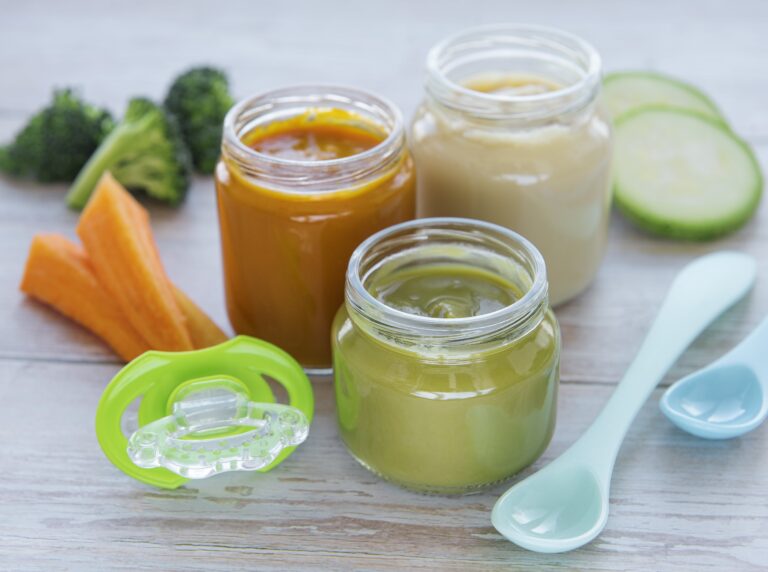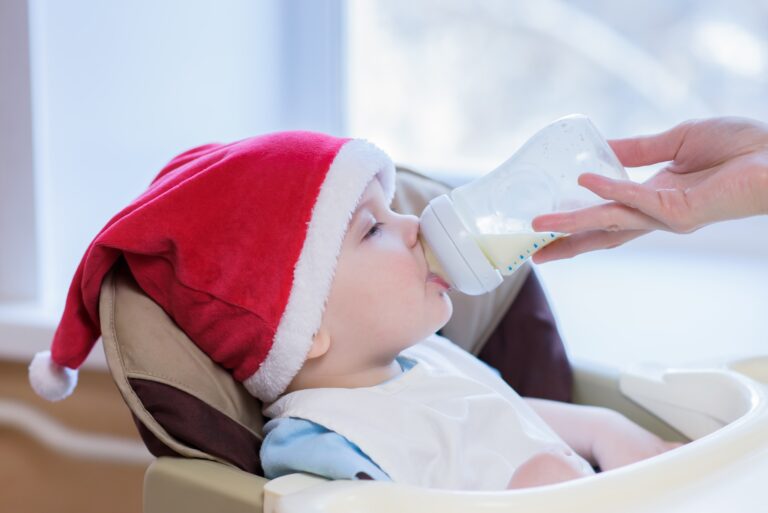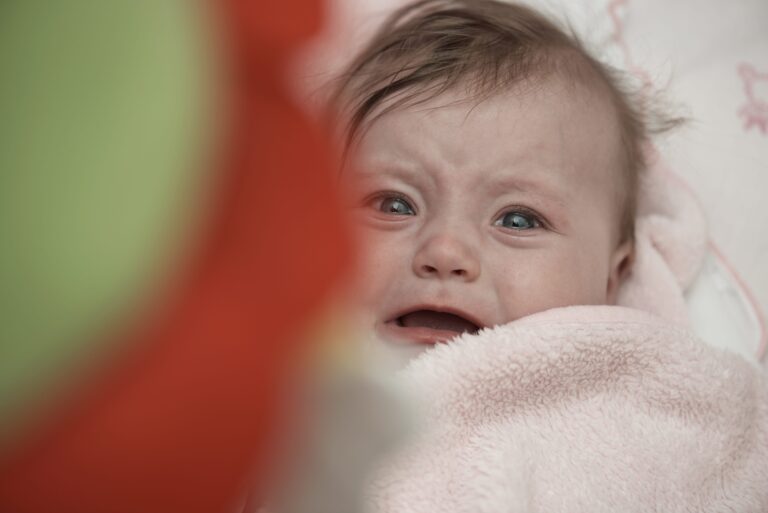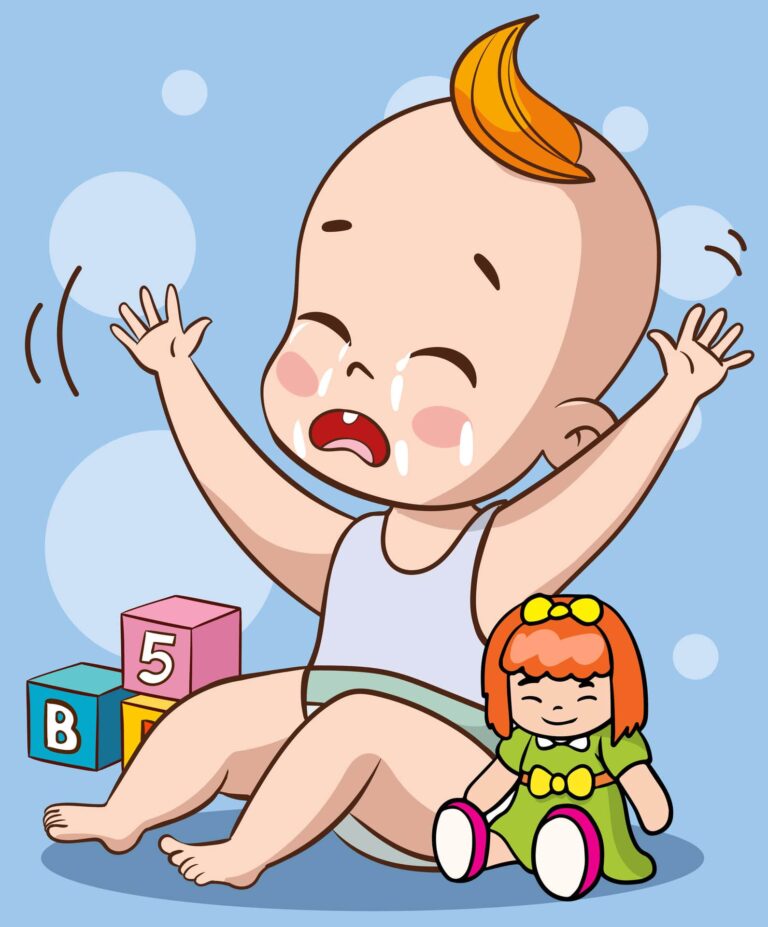Are You Supposed to Feed a Baby After They Spit Up: Quick Parent’s Guide
Baby spit-up is a common occurrence that can be concerning for parents. Understanding when to feed a baby after they spit up is crucial for their health.
This guide will provide insights into navigating through spit-up episodes, feeding techniques to minimize spit-up, GER in babies, dietary considerations, and debunk common misconceptions.
By the end, you’ll be equipped with the knowledge to handle baby spit-up with confidence.
Key Highlights
- Spit-up is a common occurrence in and is usually not a cause for concern
- It is important to differentiate between normal spit-up and abnormal patterns, such as projectile vomiting
- Understanding the causes behind spit-up, such as overfeeding or a full stomach, can help parents navigate through episodes
- Feeding techniques, such as keeping the baby in an upright position and burping frequently, can help reduce spit-up
- Gastroesophageal reflux (GER) is a common condition in babies, but it is important to know the difference between GER and gastroesophageal reflux disease (GERD)
- Parents should consult a healthcare provider if their baby displays signs of more serious conditions, such as weight loss or difficulty breathing
Baby Spit-Up: Causes and Concerns
Baby spit-up, a common occurrence in infants, can be concerning for parents. Understanding the causes is crucial. Normal spit-up is when a baby regurgitates small amounts of milk, usually after feeding.
It can be due to immature muscles in the esophagus or overfeeding. However, projectile vomiting or frequent large amounts could signal underlying issues such as gastroesophageal reflux disease (GERD).
Consult a pediatrician if you notice severe symptoms. By recognizing these patterns, parents can address spit-up concerns effectively.
Deciphering Normal Spit-Up from Abnormal Patterns
Deciphering normal spit-up from abnormal patterns involves distinguishing between typical “happy spitter” occurrences and potentially concerning signs that warrant attention.
While occasional spit-up after feeds is common in babies due to their developing digestive systems, consistent projectile vomiting, weight loss, or extreme fussiness may indicate underlying issues like gastroesophageal reflux disease (GERD).
Understanding your baby’s usual patterns, consulting with a pediatrician for guidance, and being vigilant for any unusual changes can help differentiate between harmless spit-up and abnormal reflux symptoms.
Identifying the Causes Behind Spit-Up
Spit-up in babies can have various triggers. Some common causes include immature digestive systems, overfeeding, swallowing air during feeding, and feeding too quickly.
Other factors like gastroesophageal reflux (GER) or food sensitivities could also contribute to spit-up episodes. Understanding the underlying reasons behind your baby’s spit-up can help in managing and minimizing these occurrences.
Navigating Through Spit-Up Episodes
When your baby spits up, it can be worrying, but it’s essential to stay calm and take immediate steps. Ensure your baby is in an upright position to ease discomfort. After a spit-up episode, follow the American Academy of Pediatrics’ guidelines on when it’s safe to feed your baby again.
Remember, smaller, more frequent feedings may help reduce spit-up. If you notice signs like projectile vomiting or weight loss, consult a pediatrician promptly. Understanding how to navigate through spit-up episodes can reassure parents and keep babies comfortable.
Immediate Steps After Your Baby Spits Up
After your baby spits up, gently place them in an upright position to assist in digestion and prevent further reflux. Ensure to check if they are comfortable and do not show any signs of distress. Wiping their mouth and surrounding areas clean can help maintain hygiene.
It’s advisable to wait a little before resuming feeding to allow the baby’s stomach to settle. Keep an eye on your baby for any unusual symptoms or patterns. Remember that occasional spit-up is common in healthy babies.
When Is It Safe to Feed Your Baby Again?
When is it safe to feed your baby again? After a spit-up episode, wait for about 20-30 minutes before offering small amounts of milk.
If your baby seems calm and shows no signs of discomfort, it’s generally safe to resume feeding. Remember to burp your baby frequently.
Feeding Techniques to Minimize Spit-Up
Adjusting feeding positions can help reduce spit-up occurrences. Keeping your baby in an upright position while feeding can aid in digestion and lessen the chances of regurgitation.
Burping your baby frequently during and after feedings can expel excess air, preventing pressure on the stomach.
Ensuring that your baby is in a calm and comfortable state before feeding can also contribute to minimizing spit-up episodes.
These simple techniques can make feeding a more pleasant experience for both you and your little one.
Adjusting Feeding Positions for Less Spit-Up
When feeding your baby to reduce spit-up, consider holding them in a more upright position. This can help gravity keep the stomach contents down.
Using a reclined feeding position can also be beneficial, as it may slow down the feeding pace and allow the baby to swallow less air.
Additionally, ensuring that your baby is burped frequently during and after feeds can help release any gas bubbles that could contribute to spit-up occurrences.
The Role of Burping in Reducing Spit-Up
Effective burping plays a crucial role in reducing spit-up episodes in babies. Burping helps release trapped air from the stomach, decreasing the chances of excess air causing discomfort and leading to spit-up.
By patting or lightly rubbing your baby’s back after each feeding, you facilitate the expulsion of any trapped air bubbles, aiding in digestion and reducing the likelihood of spit-up occurrences.
Consistent and adequate burping can significantly minimize spit-up incidences, promoting your baby’s comfort and well-being.
Gastroesophageal Reflux (GER) in Babies
Gastroesophageal reflux (GER) in babies occurs when stomach contents flow back into the esophagus.
Most babies experience this, with half affected by 4 months. GER differs from gastroesophageal reflux disease (GERD) as it doesn’t cause complications.
Babies usually outgrow GER by their first year. It’s crucial to differentiate between normal reflux and GERD, seeking a pediatrician’s guidance if concerned about your baby’s symptoms.
Simple feeding adjustments and keeping your baby upright after meals can help manage GER.
GER vs. GERD: Understanding the Difference
Gastroesophageal reflux (GER) in babies refers to the backward flow of stomach contents into the esophagus, common in infants under 12 months old.
Meanwhile, gastroesophageal reflux disease (GERD) involves more severe symptoms and potential complications.
While GER often resolves on its own without treatment, GERD may require medical intervention.
Understanding the disparity between the two conditions is crucial for parents to discern normal spit-up from indications of a more serious issue.
Always consult a pediatrician if concerned about your baby’s symptoms.
When to Consult a Healthcare Provider for GERD
If your baby displays persistent symptoms such as recurrent vomiting, refusing to eat, or difficulty gaining weight, consulting a healthcare provider for gastroesophageal reflux disease (GERD) is advisable.
Additionally, if your baby frequently arches their back or shows signs of discomfort during or after feeding, it might be time to seek medical advice.
It is essential to address these symptoms promptly to ensure your baby’s well-being and proper management of GERD.
Dietary Considerations for Babies Prone to Spit-Up
Breast milk is usually the best option for babies prone to spit-up as it is easier to digest than formula.
Avoiding dairy in the mother’s diet if breastfeeding can help reduce spit-up. For formula-fed babies, trying different types of formula to find one that causes less spit-up is recommended.
Additionally, feeding smaller amounts more frequently can help prevent overfeeding, which can lead to increased spit-up episodes.
Ensuring that the baby is burped properly after each feeding can also help minimize spit-up occurrences.
Identifying Foods that Worsen Spit-Up for Breastfed Babies
Certain foods in a breastfeeding mother’s diet can exacerbate spit-up in infants. Common culprits include dairy products, caffeine, spicy foods, and gas-inducing vegetables like broccoli.
Monitoring your diet and observing how your baby reacts can help identify specific triggers. Remember, every baby is unique, so what affects one may not bother another.
If you suspect a particular food is causing issues, consult a healthcare provider or a lactation consultant for guidance on modifying your diet to ease your baby’s symptoms.
Formula Choices to Reduce Spit-Up
When selecting formulas to minimize spit-up in babies, opting for specialized anti-spit up formulas can be beneficial.
These formulas are designed with added rice starch to help thicken the liquid in the stomach, reducing the likelihood of regurgitation.
Additionally, choosing formulas with smaller protein molecules can aid in easier digestion, potentially decreasing spit-up occurrences.
Consulting with a healthcare provider before switching formulas is recommended to ensure the best choice for your baby’s specific needs.
Common Misconceptions About Baby Spit-Up
Many parents believe that spit-up equates to overfeeding, but in reality, it’s often caused by the immature digestive system common in babies.
Contrary to the fear, most babies outgrow spit-up by the time they reach their first birthday, and it rarely leads to weight loss or dehydration.
Understanding these misconceptions can help alleviate parental concerns and reassure them that spit-up, while messy, is usually a normal part of infant development.
Debunking Myths: Overfeeding and Spit-Up
While commonly believed, overfeeding doesn’t directly cause spit-up in babies. Spit-up is more related to immature muscle contractions in the esophagus.
Overfeeding might lead to discomfort or indigestion, but it’s not the primary trigger for spit-up. Babies have small stomachs and can’t consume excessive amounts, making frequent feedings normal.
Trust your baby’s cues for hunger and fullness rather than worrying about overfeeding as a major spit-up.
Spit-Up and Baby’s Growth: What Parents Should Know
Spit-up is usually harmless and doesn’t affect a baby’s growth. Most babies gain weight despite occasional spit-up.
As long as your baby is wetting enough diapers and gaining weight, there’s usually no cause for concern regarding growth.
However, if you notice persistent vomiting, extreme irritability, or weight loss, consult your pediatrician promptly to rule out any underlying issues. Remember, every baby is different, and growth patterns can vary.
Frequently Asked Questions
Is Spit-Up a Sign of Overfeeding?
Spit-up can sometimes indicate overfeeding. Watch for cues like gulping, turning away, or refusing the bottle to prevent overfeeding.
If spit-up is frequent, consult a healthcare provider to rule out any underlying issues. Understanding your baby’s feeding patterns is key.
Can a Baby Be Hungry Again After Spitting Up?
Babies can indeed be hungry again after spitting up, as regurgitation doesn’t always signify a full stomach.
Monitor your baby for hunger cues post-spit-up; they may need more feeding. Consult your pediatrician for personalized advice.
Conclusion
In conclusion, understanding baby spit-up is vital for parents. Normal spit-up differs from abnormal patterns, and identifying causes helps manage episodes.
Adjusting feeding techniques, positions, and burping can reduce spit-up.
Gastroesophageal reflux may need medical attention, and dietary adjustments could help.
Dispelling myths surrounding spit-up and focusing on a baby’s growth are essential. Remember, consulting a pediatrician for severe issues is crucial.
Stay informed and attentive to your baby’s needs to navigate spit-up with confidence.






